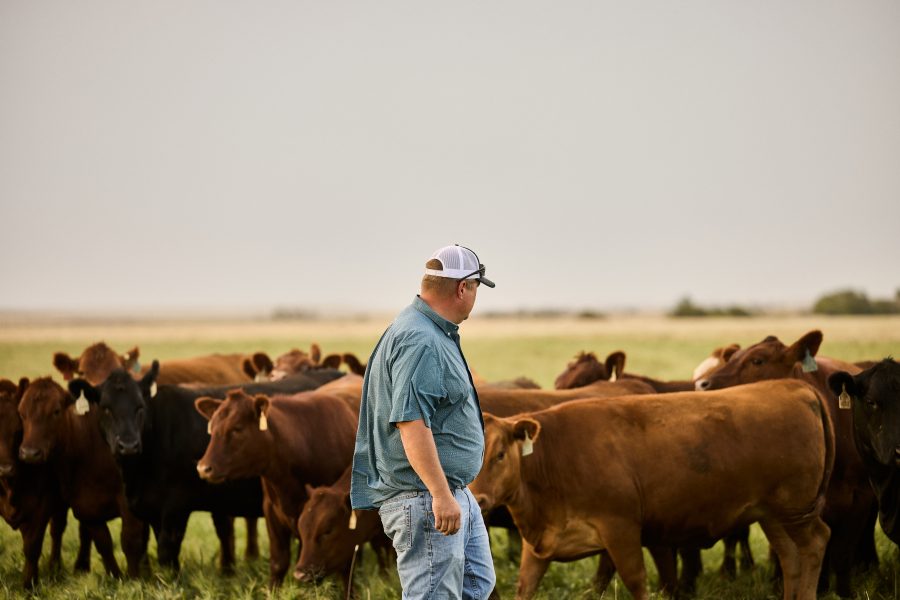WASHINGTON, D.C. – The U.S. continues to benefit from solid economic growth, low unemployment and moderating inflation. From today’s vantage point, the U.S. economy seems likely to continue on that trajectory into 2025.
However, the outlook for the rural economy is more volatile and uncertain. Rural industries are disproportionately exposed to federal policy, and the outcome of the 2024 election cycle promises to bring significant changes in the federal government’s approach to everything from international trade and immigration to energy exploration and rural economic development.
According to a comprehensive year-ahead outlook report from CoBank’s Knowledge Exchange, the high level of policy uncertainty facing rural industries adds to their already long list of headwinds and challenges.
“The environment we enter in 2025 hasn’t fully defined itself yet, but many of the policies proposed by the incoming administration would likely have a negative impact on U.S. agriculture,” said Rob Fox, director of CoBank’s Knowledge Exchange. “Open access to export markets and labor availability are critically important for agricultural producers and processors. Depending on how policy plays out, those two areas could be big challenges in 2025 and beyond.”
The CoBank 2025 outlook report examines several key factors that will shape agriculture and market sectors that serve rural communities throughout the U.S.
U.S. Economy: A New Economic Era Begins
Most economists are forecasting 2025 U.S. GDP growth around 2.5%-3.0%, essentially the same as today. However, those forecasts are based on rather mild assumptions on forthcoming policy changes. When taken in isolation, President-elect Trump’s proposed policies – tax cuts, decreased labor supply and tariffs on imported goods – are all inflationary. Consequently, longer-term interest rates have already edged higher, and the market has downshifted expectations for further Fed rate cuts in 2025. There is a good chance the proposed tariffs and the crackdown on undocumented immigrants will be more disruptive than markets have priced in, particularly in industries like construction and agriculture.
U.S. Government: Trump Administration, Congress Set for Bustling January Start
Congress is expected to wrap up the lame duck session of the 118th Congress by Dec. 19, hopefully addressing important pieces of unfinished business. A one-year extension of the 2018 Farm Bill is increasingly likely. President-elect Trump is expected to pursue an ambitious first-100 days of executive orders and other legislative activity that will likely include many of his campaign promises. These may include significant deportation efforts and immigration reform, implementation of tariffs, extending the 2017 tax cuts and providing regulatory relief rolling back the Biden administration’s initiatives. The 119th Congress will have a long and challenging to-do list when members return to Washington on Jan. 3.
U.S. Agricultural Economy: Trade War Could Send Ag Economy from Bad to Worse
The short-lived commodity boom precipitated by global droughts, the war in Ukraine and COVID-19 supply issues is now a distant memory. Row crop prices are down nearly 50% from their 2022 highs. But production costs have remained elevated, and profitability has plunged to decade-plus lows. The silver lining is that dairy and livestock producers are generally profitable due to low feed costs and resilient consumer demand. However, more headwinds may be coming for both the crop and livestock sectors. President-elect Trump rode to victory on two main economic policy proposals: enact significant import tariffs and reduce immigration while deporting undocumented residents. In theory, these policies could achieve some limited objectives, but it is hard to paint them as anything but negative for the U.S. farm economy.
Grains, Farm Supply & Biofuels: Policy Uncertainty Weighs on Exports, Biofuels
A strengthening U.S. dollar, combined with the potential for trade disputes and record-large South American crops, weigh heavily on the outlook for grain and oilseed prices in 2025. U.S. farmers are widely expected to struggle with further margin compression as weaker commodity prices test farmers’ ability to lower production costs. Crop input decisions will be evaluated much more closely with a focus on inputs that provide the greatest return on investment. The bearish outlook for oil prices diminishes the demand picture for ethanol, biodiesel and renewable diesel. Uncertainty over U.S. biofuel policy under the new administration also clouds the demand outlook for biofuels.
Animal Protein: Rising Margins Improve Prospects for Growth
Falling feed costs and rising producer margins have renewed expansion interest in animal protein segments. However, labor, construction and land costs remain elevated, tempering expectations for any meaningful supply growth in the near term. U.S. beef cow herd expansion is not expected to start until 2026 or 2027. The smaller herd will further support higher feeder and fed cattle prices in the coming year. With consumers now pushing back on beef prices already near historic highs, packer margins will remain under pressure well into 2025.
Dairy: Record Investment Will Continue to Grow the Category
The U.S. will see an unprecedented $8 billion in new dairy processing investment through 2026. Some of the new plants are poised to come online in 2025, with about half of the investment in the cheese category. The expected surge in cheese and whey output will likely put downward pressure on dairy product prices in the second half of the year. Sourcing additional milk supplies to fill new plant capacity is a looming question. 2023 and 2024 will go down as the first back-to-back years since the late 1960s that U.S. milk production took a downturn. *See affects of H5N1 outbreak on dairy herds & milk supply On the flip side, higher component levels in farmgate milk, largely butterfat and protein, have lifted finished product yields.
Food & Beverage: Health and Nutrition Take Center Stage
The headline news for food, beverage and consumer packaged goods in 2025 is President-elect Trump’s nomination of Robert F. Kennedy Jr. to lead the Department of Health and Human Services. Kennedy’s purported goals include eliminating ingredients banned in other countries and “getting the chemicals out” of America’s food supply. Meanwhile, consumers’ renewed focus on their health and the popularity of GLP-1 weight-loss drugs are showing signs of impacting food manufacturers. GLP-1 users purchase around 8% less food compared with average consumers, according to J.P. Morgan research. Food and beverage manufacturers’ concerns about volume attrition are likely to continue well into 2025.
Power & Energy: What an IRA Rollback Might Look Like
President-elect Trump’s return to the White House will signal a significant shift in U.S. energy policy. While he has promised to end the Inflation Reduction Act, slowing the clean energy momentum that has accelerated under the IRA may be more difficult than imagined. Popular programs in the IRA have directed significant investments to many rural and economically distressed communities. And more than a dozen House Republicans have voiced concern that repealing the IRA could jeopardize ongoing development in their communities. Clawing back IRA funds that have already been allocated could prove to be very difficult. The more likely scenario is that unallocated IRA funding will be redirected to other priorities.
Digital Infrastructure: Rural Connectivity Faces New Challenges
Political uncertainty and low participation in the Broadband, Equity, Access and Deployment program raises big questions for bridging the digital divide in the year ahead. The $42.5 billion BEAD program, created by the Infrastructure Investment and Jobs Act, includes an unprecedented level of government support. However, a lack of operator participation could blunt the impact of this well-intended program to bring reliable broadband access to underserved rural areas. Many small operators lack the specialized expertise or financial resources to meet some of the complicated BEAD requirements.
Read the full report, The Year Ahead: Forces That Will Shape the U.S. Rural Economy in 2025.














